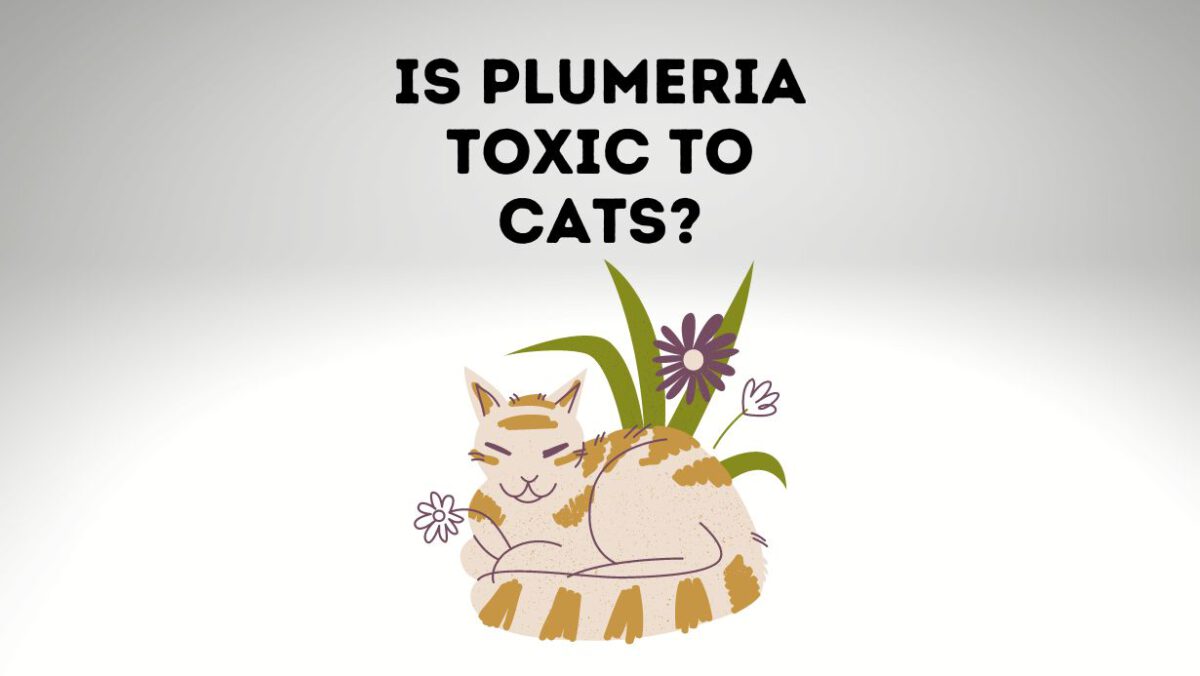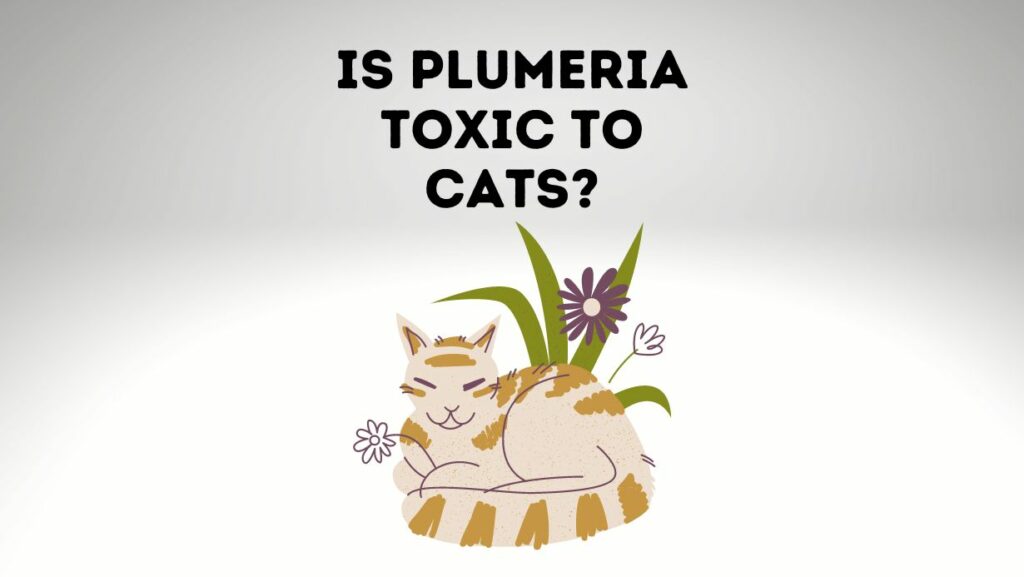When it comes to the safety of our beloved feline friends, it’s crucial to be aware of potential dangers lurking in our homes and gardens. One such danger is the plumeria plant. Despite its beauty and fragrance, plumeria can be toxic to cats. In this article, we’ll explore why plumeria is toxic to cats, how to prevent plumeria toxicity, and what to do if your cat ingests this plant.
How is Plumeria Toxic to Cats?
Plumeria (Plumeria rubra) is a tropical plant commonly used in leis and floral arrangements. While it may be aesthetically pleasing, all parts of the plumeria plant – including the flowers, leaves, and stems – are toxic to cats. The exact toxic compounds in plumeria are unknown, but it is believed that saponins, a type of glycoside found in various plants, may be responsible. When ingested, these compounds can cause gastrointestinal irritation, leading to symptoms such as vomiting, diarrhea, and abdominal pain in cats. In severe cases, plumeria toxicity can even result in tremors, seizures, or death.
Preventing Plumeria Toxicity in Cats
The best way to protect your cat from plumeria toxicity is to prevent their access to the plant. If you have a plumeria plant in your home or yard, it’s crucial to ensure that your cat cannot reach it. This may involve keeping the plant in an area that is off-limits to your cat or using barriers to restrict their access. Awareness is key, so if you suspect that your cat has ingested plumeria, it’s important to act swiftly.
Treating Plumeria Toxicity in Cats
If you suspect that your cat has ingested plumeria, it’s vital to seek veterinary care immediately. Unfortunately, there is no specific antidote for plumeria toxicity, so treatment will focus on supportive care. Your veterinarian may administer intravenous fluids to prevent dehydration and help eliminate the toxins from your cat’s system. In severe cases where your cat is experiencing seizures or other serious symptoms, hospitalization may be necessary. Remember, prompt action is crucial to give your cat the best chance of recovery.
Protecting Your Cat
To ensure the safety of your feline friend, take proactive measures to keep plumeria out of their reach. If you have a plumeria tree in your yard, make sure it is inaccessible to your cat. When purchasing leis or floral arrangements that contain plumeria, check with the florist to ensure that the flowers have been treated with a safe pesticide. It’s always better to be safe than sorry.
Frequently Asked Questions
Q: Can dogs also be affected by plumeria toxicity?
A: Yes, plumeria is toxic to both cats and dogs. Just like cats, dogs can experience various symptoms if they ingest plumeria. It’s crucial to keep plumeria plants away from all pets to ensure their safety.
Q: Are there any safe alternatives to plumeria for floral arrangements?
A: Yes, there are plenty of other non-toxic flowers and plants that you can use instead of plumeria. Some safe alternatives include roses, sunflowers, and orchids. Always double-check with your florist to ensure the safety of the flowers you choose.
Q: What other common household plants are toxic to cats?
A: Several common household plants can be toxic to cats, including lilies, tulips, daffodils, and aloe vera. It’s important to research and identify any potentially harmful plants in your home to keep your feline friend safe.
Conclusion
As responsible pet owners, it is our duty to be aware of potential dangers that can harm our furry companions. Plumeria toxicity is a serious concern for cat owners, and it’s essential to take preventive measures to keep our cats safe. By understanding the risks, providing a safe environment, and seeking immediate veterinary care if ingestion occurs, we can protect our feline friends from the dangers of plumeria toxicity.
Remember, the health and well-being of our pets should always be a top priority.
For more informative articles on pet care and safety, visit Pawsoha.

